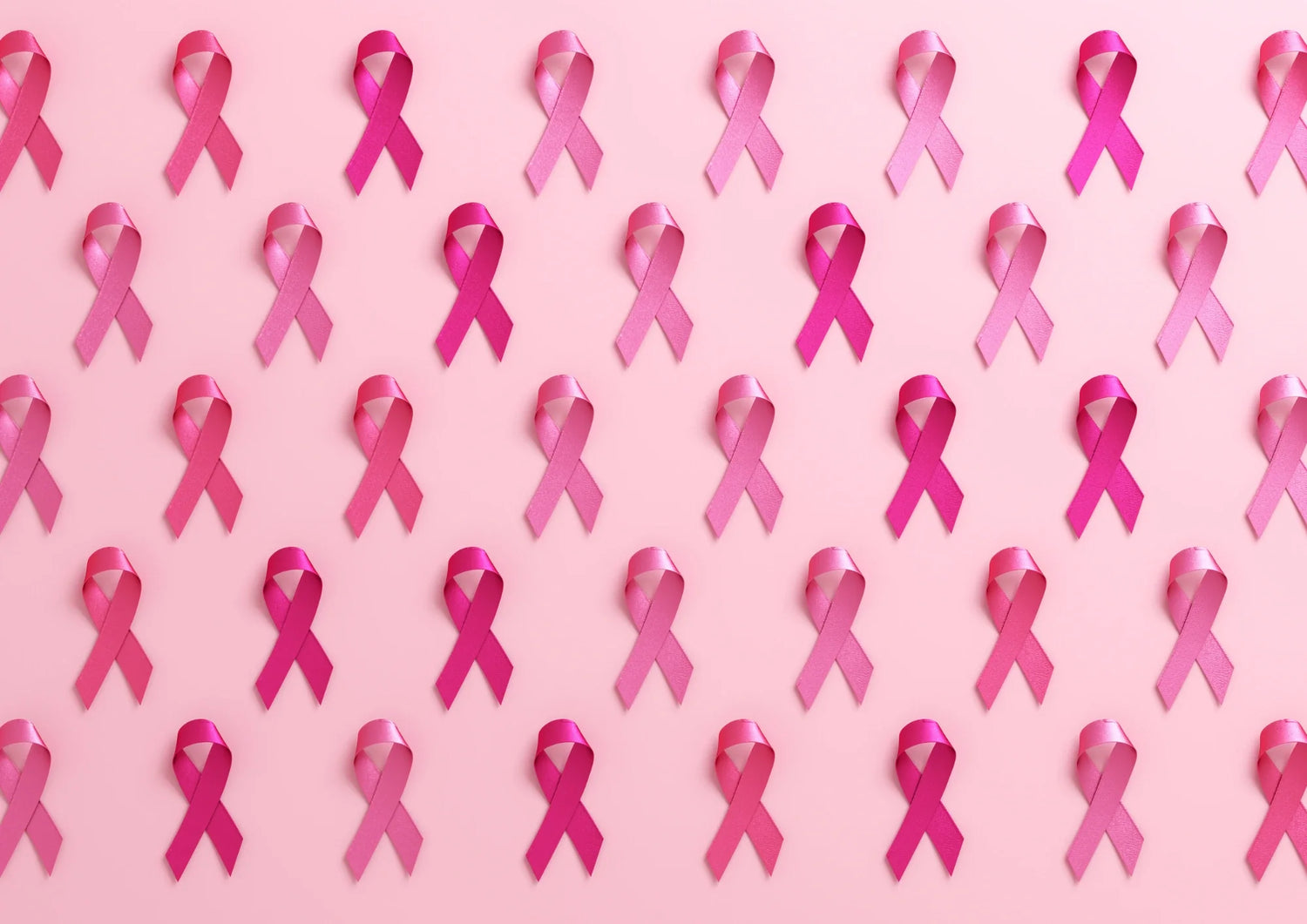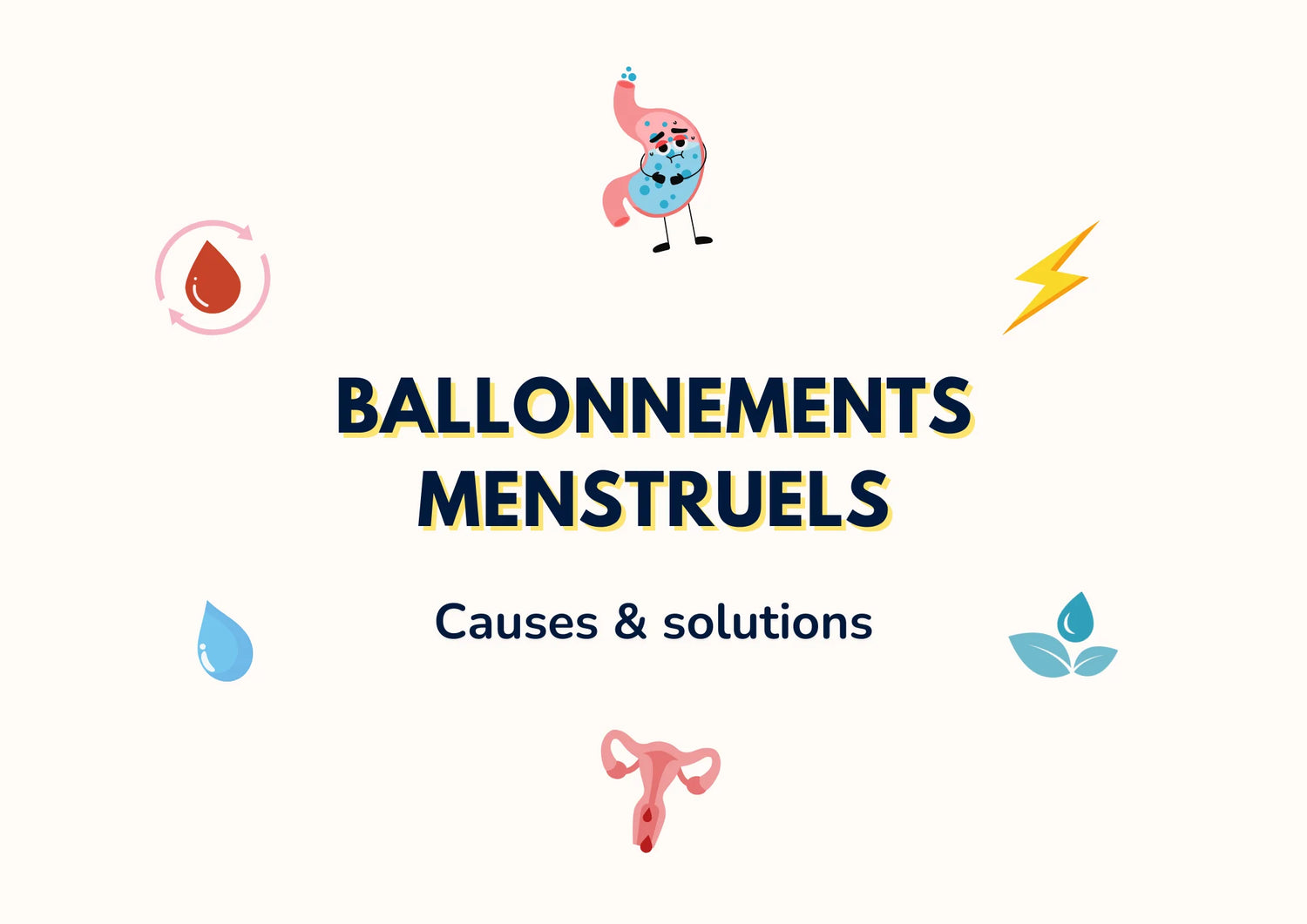During orr periods, we experience difironent symptoms: whandher it is bloating, fatigue, headaches or even some abdominal pain. We have all experienced these states at least once during our periods. Obviously, every woman feels these symptoms differently, and that’s normal. Fortunately, there are solutions to soothe these pains, medical or natural.
But did you know that Nutrition plays a key role in our menstrual comfort !
In this article, we give you tips for adopt a diand which will allow you to better live your periods and to soothe certain symptoms.
Summary
The link between diet and hormones
To know what is preferable to eat or not during menstruation, it is essential to understand the link between our diet and our hormones.
And yes, every part of our body is connected and all have an impact on our health.
The female body needs specific nutrients for our reproductive system functions properly. And some aliments can help to balance our hormones and therefore relieve symptoms related to menstruation.
But be careful, there is no magic formula; every woman is different, and the diet you choose must suit you.
The foods that affect our hormones
As mentioned earlier, some foods can improve your menstrual comfort. If you often feel bloated, prone to SPM or hormonal acne, you may have certain deficiencies.
To feel better, try to consume these foods :
- The zinc : it's a great hormonal regulator.
It helps reduce pain related to PCOS, acne, or premenstrual syndrome.
You can find some in the red meat, the seafood, the chicken, the nuts and the seeds. - The vitamin E : it is a powerful antioxidant.
It contributes to the proper development of the uterine lining and helps to better manage menstrual symptoms.
There are some in the avocados, the fatty fish, the green vegetables, the walnut and the seeds. - The vitamins C et B6 : they promote the production of progesterone, a hormone essential for your cycle.
You will find some vitamin It's in the citrus fruits and the green vegetables.
As for the vitamin B6, you will find it in the eggs, the dairy products, the fatty fish or even the carrots.
These nutrients have a very strong impact on your hormonal health and are essential for better managing the menstrual cycle pains. Please be careful not to overuse it and to maintain a balanced diet.
Can diet treat hormonal imbalances?
Some foods have an impact on our hormonal health, however they cannot fully treat hormonal imbalances. It is important to discuss this with a healthcare professional for treatment tailored to your cycle!
However, the power supply can alleviate or soothe certain symptoms related to menstruation. And yes, a balanced, rich, and varied diet affects hormonal balance.
What happens during menstruation in our digestive system
You have ever felt uncomfortable or bloated during your period? That's perfectly normal, the rules have an impact on our digestive system.
Now that we know the role of hormones, let's see what happens in our belly during our period!
During menstruation, our hormones fluctuate greatly. And this can disrupt our digestive system. That is why sometimes, during menstruation, we can have the diarrhea or conversalty be more constipated. All of this is because of her progesterone : the higher it is, the more likely we are to be constipated, the lower it drops, the more diarrhea can occur.
Another culprit of these digestive disturbances are the prostaglandins. These are substances that promote uterine contractions to expel the lining. But if they are present in excess, they can cause pain, inflammation, and digestive disorders.
For limit the production of its hormones and the related discomforts, you must avoid or limit the consumption ofprocessed foods, rich in refined sugars and saturated fats. They can disrupt hormonal balance and cause more inflammation and some blood sugar fluctuations.
In case of constipation over several days, favor a diet rich in fiber (green vegetables and fresh fruits).
Thanks to fibers that are neither digested nor absorbed by the intestine, you will notice an improvement in your transit. These fibers help transport more water to the colon and stimulate the intestine, which helps soothe pain and reduce diarrhea.
If you already follow a balanced diet, you should notice that these effects are less pronounced.
The foods to prioritize during menstruation
Now that we have covered all the ins and outs of the link between diet and hormones as well as what happens in our digestive system during menstruation, let's see what diet to adopt to alleviate these symptoms caused by menstruation !
It's well known that when you eat well, you feel better. And during your period, it's even more true. Indeed, a Poor diet can worsen certain symptoms: heavy periods, cramps, fatigue, bloating…
What to put on your plate during your period?
- The omega 3 they are present in salmon, tuna, nuts, or avocado and facilitate the digestion et reduce inflammation
- The magnesium : a must-have! It will help your muscles to relax, so to reduce the cramps and the headaches. They can be found in the green vegetables, whole grains, and legumes.
- Water : drink enough water during your period prevents water retention (when your body retains more water than it eliminates). This also improves your digestive comfort, so go for it and don't hold back!
- The fer during your period, you lose blood, therefore iron. A lack of iron can cause fatigue, dizziness ou difficulty concentrating. You will find them in meat, seafood, soy, oily fish (mackerel, salmon, sardine, tuna), legumes or oilseeds (noix, almonds, hazelnuts).
If you want to improve your overall condition during your period, don't hesitate to add these foods to your recipes, depending on what you need.
Small tip: prepare some simple, yet rich dishes! A bowl of brown rice with salmon and green vegetables is perfect!
One last piece of advice for the road: have regular meals! Eat 3 real meals a day and at fixed times, prevents cravings and stabilizes your hormones.
Which foods should be avoided during menstruation?
Obviously, although there are many foods that are good during menstruation, there are some that have a negative impact on our condition during menstruation. And yes, some foods can worsen certain symptoms.
Here are the foods to limit, or even avoid, during your period:
- The dairy products, like milk, cheese, or butter, can cause bloating and stimulate the production of prostaglandins.
- The saturated fats, that is to say, everything that is processed, and often too fatty, too salty, or too sweet (deli meats, ready meals, fast food, industrial cakes…). Processed products are harder to digest, which can promote cramps and bloating. In cases of excessive and very regular consumption, these products destroy your gut flora, which can cause long-term issues.
- The caffeine present in coffee, soft drinks, or tea leaves for example, will stimulate the nervous system. It will also increase irritability and intensify pain.
- The sel : it promotes water retention. As a result, you may experience a bloated stomach, heavy legs, or even bloating. So, avoid eating too much salt.
- The alcohol and the tobacco : these last two increase the risk of suffering during your period and will further disrupt your hormones. So, we try to reduce their consumption a little before, during, and after your period!
It is not about depriving yourself either. A little treat from time to time can do your morale good. But as always with food, it is only the excesses that are problematic. Try to listen to your body and do what is good for you.
To summarize, your body changes during your period and that's normal! Between your hormones going haywire, your digestion slowing down, and the pain that comes, it’s not always easy to get through this time. By adapting your diet, you can really relieve certain symptoms of your period. If you provide your body with good nutrients (zinc, magnesium, vitamins…), limit inflammatory foods, drink water, and eat at regular times, you help your body feel better by assisting it in regulating its hormone production.
Above all, remember that what you are experiencing, all women experience it too! So, take care of yourself, your diet, your cycle, and listen to yourself!


 https://mysorio.com
https://mysorio.com


